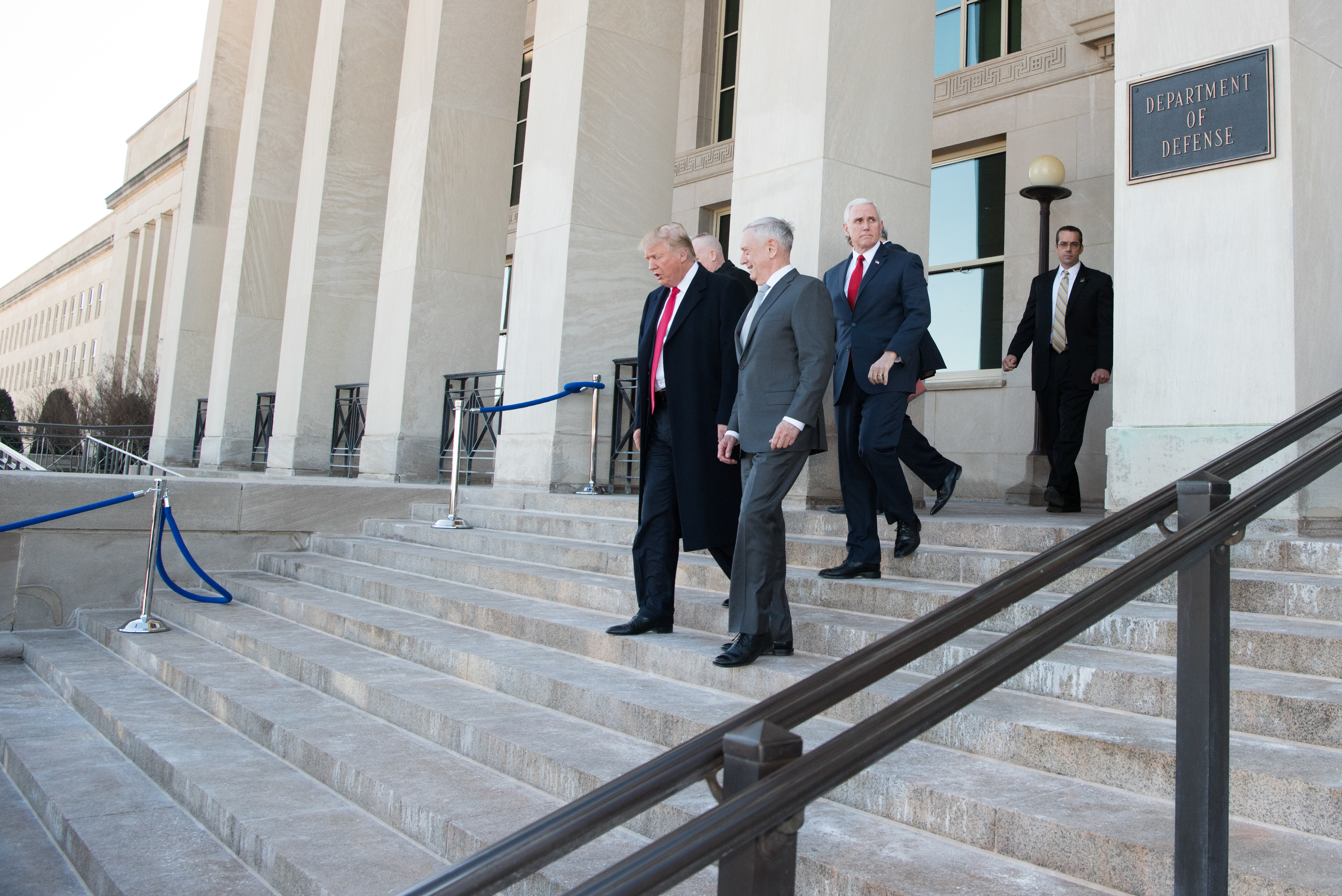
Defense Secretary James Mattis stressed it was Tehran’s aggressive military behavior – from ballistic missile testing to its intervention in the Syrian civil war to financially and militarily supporting terrorists to threatening maritime commerce across the Middle East – that factored into President Donald Trump’s decision this week to walk away from the nuclear agreement with Iran.
Testifying Wednesday before the Senate Appropriations defense subcommittee, he said of the Joint Comprehensive Plan of Action on Iran’s nuclear program, “we found it inadequate for the long-term effort” to bring Iran back into compliance with international norms of behavior.
“We will continue to work alongside our allies and partners to ensure that Iran can never acquire a nuclear weapon, and will work with others to address the range of Iran’s malign influence,” Mattis said.
In recent weeks, French President Emmanuel Macron and German Chancellor Angela Merkel met with Trump to urge him to remain in the deal but work with them in improving it. Britain’s Prime Minister Theresa May took the same position in writing Trump.
In addition to those nations, Russia and China also participated in the negotiations and signed. There was no vote in the Senate to ratify the agreement as a treaty when the deal was reached in July 2015.
At the hearing, Mattis added that the administration has been in office since January 2017, so “this was not a hasty decision.” By re-imposing the sanctions that were in place when the agreement was signed, “we now have the opportunity to move forward” in strengthening any future agreement with Tehran over its nuclear program.
He said the decision also demonstrates to North Korea the United States’ seriousness about nuclear negotiations.
National Security Advisor John Bolton, speaking at a White House press briefing Tuesday, said, “this deal [with Tehran] was fundamentally flawed” because “it does not do what it purports to do:” stopping Iran from “developing deliverable nuclear weapons.” Bolton called the inspection provisions in the 2015 agreement severely lacking in allowing the United States and other signatories “to have confidence that we’ve detected all of Iran’s nuclear-related activities.”
He added, “the only sure way to get on the path to stopping Iran from developing nuclear weapons and delivery capabilities was to get out of the deal.”
In announcing the United States’ plans, Trump, quoting former Secretary of State Dean Acheson, said the nation must always negotiate from a position of strength.
“This was a horrible, one-sided deal that should have never, never been made,” Trump said.
“It didn’t bring calm, it didn’t bring peace, and it never will.”
Talking to the press after Trump’s short address, Bolton said the message to North Korea “is the president wants a real deal; that’s what we’re asking for, what Secretary [Mike] Pompeo will be discussing with people in North Korea.”
Those talks ended Wednesday.
Mattis said at the Senate hearing, “there is some reason for optimism” in looking at the upcoming summit between Trump and North Korean leader Kim Jong-un in Panmunjom. “These talks can be fruitful.”
When asked if the Pentagon was developing new operational plans for the Middle East in wake of the decision to leave the Iran deal, Mattis said, “we maintain military options because of Iran’s threats,” including its “death to America” rallies and propaganda. He cited his experience as U.S. Central Command’s top officer, adding, “we are always updating those plans … as rapidly as needed.”
He said in answering a later question that he did not expect to request additional funds for CENTCOM at this time as a result of leaving the deal.
Although Bolton branded Tehran as “the central banker of international terrorism,” he dismissed the ideas that the United States was moving to a war footing or seeking regime change in Tehran by pulling out of the agreement.
Zeroing in on the nuclear issue’s importance in any negotiation, he said, “when you’re serious about eliminating the threat of nuclear proliferation, you have to address the aspects that permit an aspiring nuclear weapons state to get there. The Iran deal did not do that. A deal that we hope to reach, the president is optimistic we can reach, with North Korea will address those issues.”
Bolton said later, “verification and compliance aspects of any proliferation or arms control deal are absolutely essential” in any agreement.





